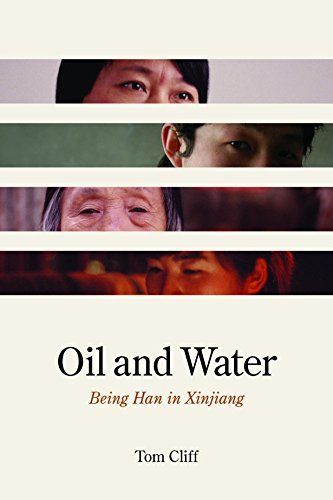
Oil and Water Being Han in Xinjiang
Xinjiang is, like Tibet, one of China s autonomous regions. Despite the overwhelming attention scholars and activists have given to Tibet, Xinjiang has garnered relatively little attention. Never a quiescent place, however, it has seen one uprising after another, most recently in violent flare-ups over the cultural repression and economic exclusion of the local Muslim Uyghurs. Oil and Water, by anthropologist and photographer Tom Cliff, is the first book to turn the lens onto Han Chinese settlers. Using ethnographic vignettes, life histories, and arresting photographs, Cliff shows how large-scale social and institutional structures, historical narratives, and national political imperatives have shaped the lives of ordinary Han settlers in Xinjiang. The book weaves together the individual threads of life histories to show what it means to be Han in this frontier zone. Along the way, Cliff makes a number of surprising points: for example, that the Communist Party is in fact more concerned with stability among the Han in frontier regions than Uyghur cooperation itself; or that the frontier is simultaneously seen as backward and ahead in that it is the testing ground for policies and practices that may later be put to use in the core. Most important, by shifting the focus away from often-studied state actions and Uyghur reactions and onto the daily experience of diverse Han settlers, Oil and Water provides the first behind the scenes look into the colonial enterprise that China has tried to hide from the world since it took power sixty years ago."